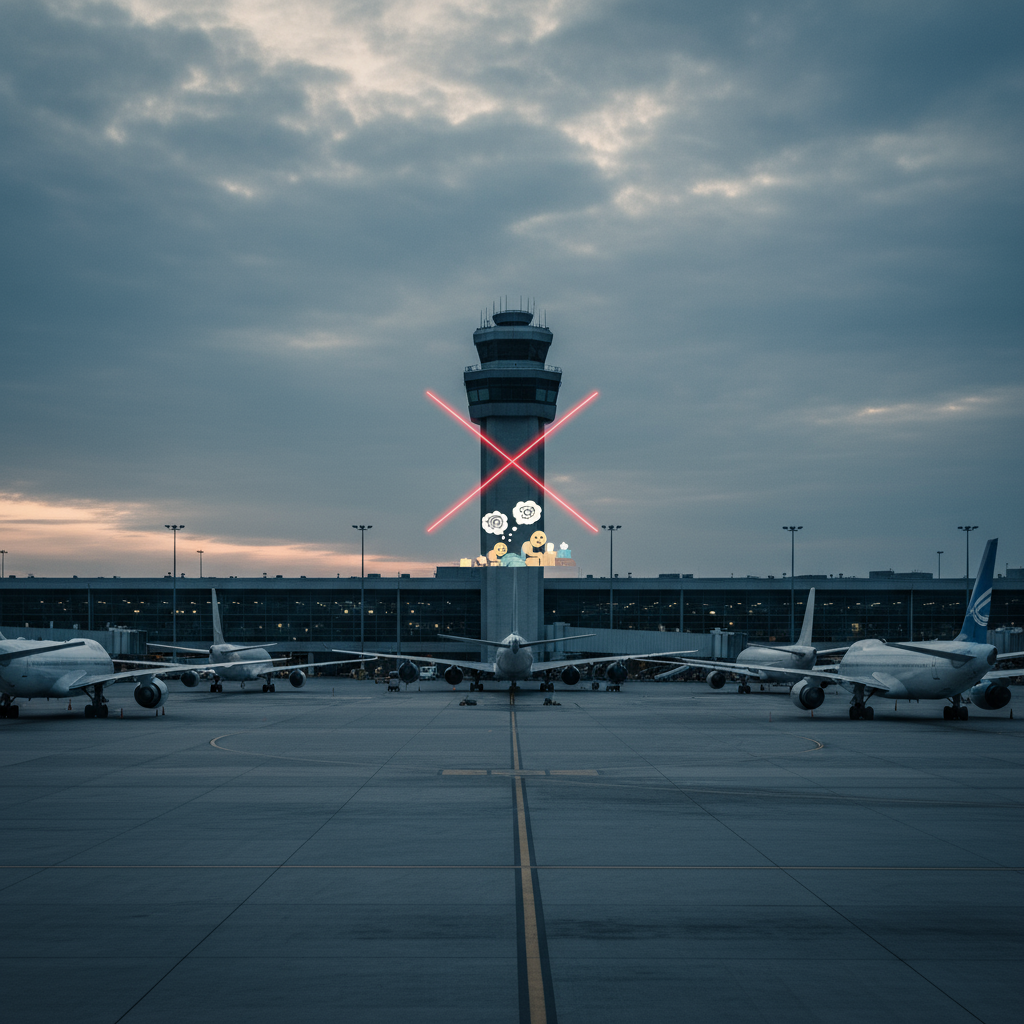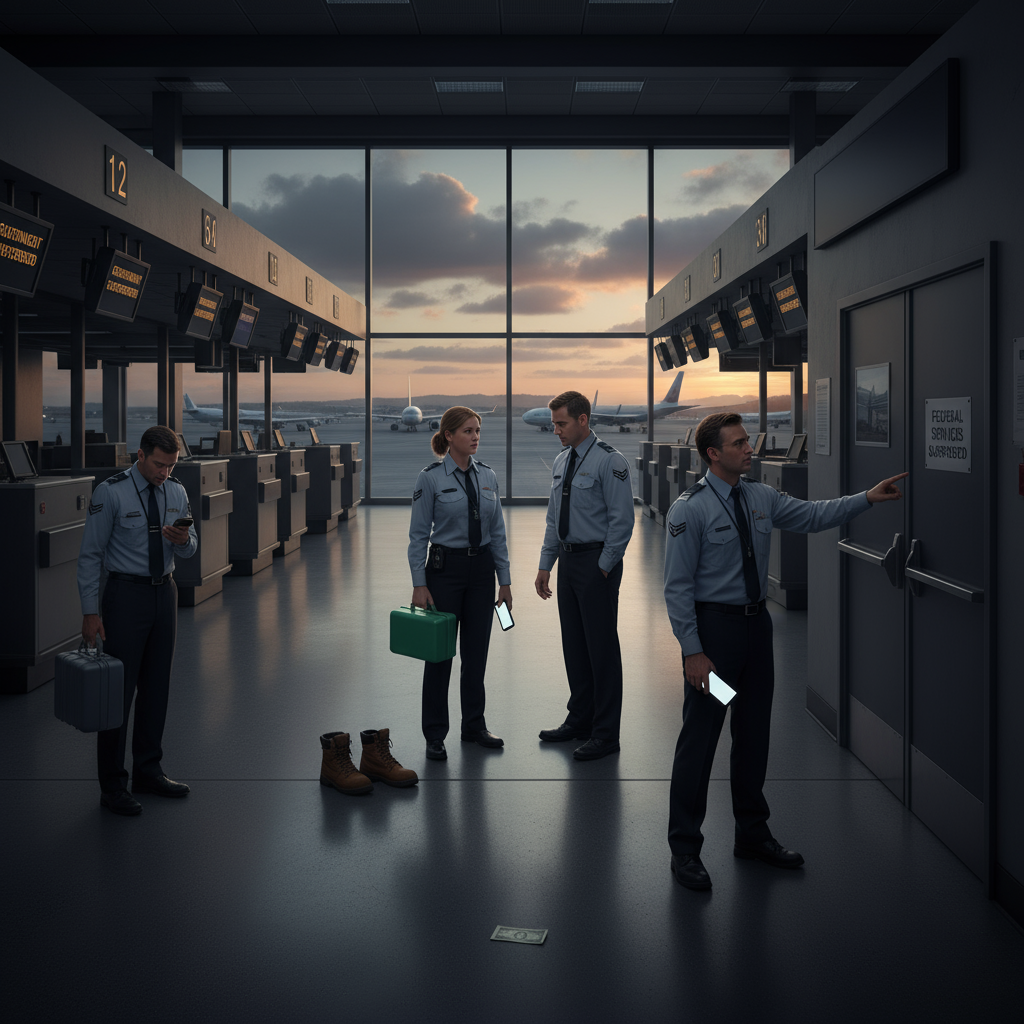When the Shutdown Hits the Skies: Duffy’s Stance on Air Traffic Controller Sickouts

The Unseen Crisis: A Deep Dive into Government Shutdowns and Essential Workers

Government shutdowns in the United States are not just political spectacles; they ripple through the lives of millions, often creating unforeseen crises for essential workers. While the headlines typically focus on the political deadlock, the human cost is substantial. Essential personnel, from Border Patrol agents to air traffic controllers, are often required to work without pay, leading to immense financial strain and morale issues. This precarious situation can force difficult choices upon those who keep the country running.
One particularly stark example emerged during a past shutdown when approximately 10% of air traffic controllers called out sick. This move, widely perceived as a protest against working without pay, highlighted the vulnerabilities of critical infrastructure when its workforce feels undervalued and unheard. The aviation industry, already operating with tight margins of safety and efficiency, becomes even more fragile when its human components are pushed to their limits.
Duffy’s Dilemma: A Stark Warning to Essential Personnel
In response to the air traffic controllers’ sickout, then-Congressman Sean Duffy issued a stern warning that reverberated across the nation. His message was unambiguous: “When you come to work, you get paid. If you don’t come to work, you don’t get paid.” While seemingly a matter of common sense on the surface, this statement carried a much deeper implication in the context of a government shutdown. It suggested a zero-tolerance policy for absenteeism, even when paychecks were suspended.
Duffy’s stance implied that essential workers, regardless of their financial hardship, were expected to perform their duties without interruption. He further elaborated, suggesting that those who chose not to report for duty could face termination. This threat underscored the difficult position essential workers find themselves in during shutdowns – caught between their professional obligations and their personal financial realities, with political leaders offering little empathy for their plight.
The Ethical and Practical Ramifications of “No Work, No Pay, No Job”
The ethical implications of Duffy’s threat are profound. Is it fair to expect individuals to perform critical, high-stress jobs without compensation, and then penalize them for protesting this unfair situation? Air traffic control is not a job that can be done half-heartedly; it demands absolute focus and skill, directly impacting the lives of thousands of travelers daily. Forcing these professionals to work under duress, with their families’ financial well-being at stake, raises serious questions about public safety.
Practically, replacing a significant portion of the air traffic control workforce is not a simple task. These are highly skilled individuals who undergo extensive training and certification. A mass firing would cripple air travel for an extended period, leading to unprecedented disruptions and potentially unsafe conditions. The cost of training new controllers far outweighs the cost of paying existing ones, even during a temporary shutdown. This highlights a fundamental misunderstanding of the specialized nature of these roles.
Beyond the Ultimatum: Exploring Solutions for Essential Workers in Shutdowns
The recurring issue of essential workers laboring without pay during government shutdowns demands a more compassionate and sustainable solution than ultimatums. One option could be establishing an emergency fund or a pre-approved line of credit for essential federal employees that automatically activates during a shutdown. This would provide immediate financial relief and remove the impossible choice between work and feeding one’s family.
Furthermore, legislative reforms could be considered to limit the duration of shutdowns or to ensure that essential personnel are compensated in a timely manner, retrospectively if necessary. The current system places an unfair burden on those who form the backbone of national services. By recognizing the critical contributions of these workers and enacting policies that protect their financial security, we can ensure the stability of vital government functions, even amidst political turmoil.
Safeguarding Our Skies: A Call for Empathy and Stability
The incident involving Sean Duffy’s threat to air traffic controllers during a shutdown serves as a powerful reminder of the human element in government operations. While political battles are fought in Washington, real people with real families bear the brunt of the consequences. The safety and efficiency of our national airspace depend on a dedicated, well-supported, and fairly compensated workforce. Threats and ultimatums only undermine morale and introduce unnecessary risks.
Moving forward, it is crucial to foster a climate of understanding and support for essential workers. Our nation’s security and public safety are only as strong as the individuals who uphold them, day in and day out, regardless of political gridlock. Let us remember that behind every flight, every essential service, there are dedicated professionals who deserve our respect, fair compensation, and a stable working environment, even when the government itself is in turmoil.

